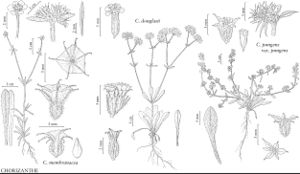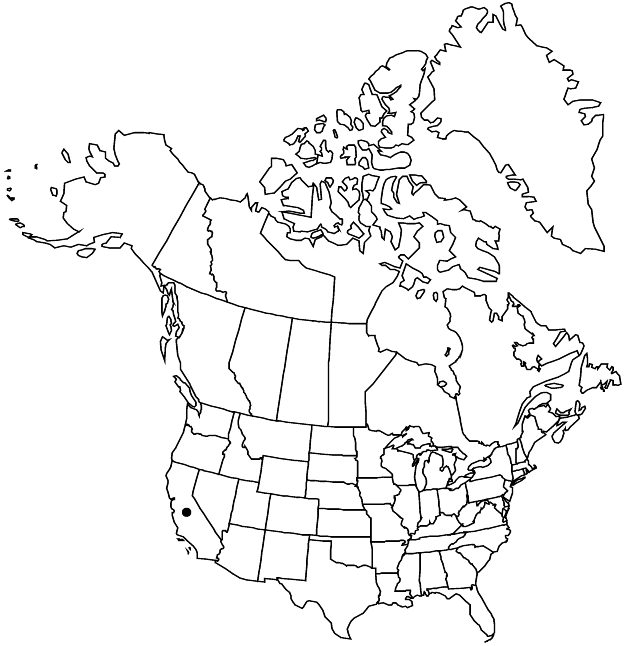Difference between revisions of "Chorizanthe douglasii"
Trans. Linn. Soc. London 17: 418. 1836.
FNA>Volume Importer |
imported>Volume Importer |
||
| Line 8: | Line 8: | ||
}} | }} | ||
|common_names=Douglas’s spineflower | |common_names=Douglas’s spineflower | ||
| + | |special_status={{Treatment/ID/Special_status | ||
| + | |code=F | ||
| + | |label=Illustrated | ||
| + | }}{{Treatment/ID/Special_status | ||
| + | |code=E | ||
| + | |label=Endemic | ||
| + | }} | ||
|basionyms= | |basionyms= | ||
|synonyms={{Treatment/ID/Synonym | |synonyms={{Treatment/ID/Synonym | ||
| Line 50: | Line 57: | ||
|publication title=Trans. Linn. Soc. London | |publication title=Trans. Linn. Soc. London | ||
|publication year=1836 | |publication year=1836 | ||
| − | |special status= | + | |special status=Illustrated;Endemic |
| − | |source xml=https:// | + | |source xml=https://bitbucket.org/aafc-mbb/fna-data-curation/src/2e0870ddd59836b60bcf96646a41e87ea5a5943a/coarse_grained_fna_xml/V5/V5_938.xml |
|subfamily=Polygonaceae subfam. Eriogonoideae | |subfamily=Polygonaceae subfam. Eriogonoideae | ||
|genus=Chorizanthe | |genus=Chorizanthe | ||
Latest revision as of 23:15, 5 November 2020
Plants erect, 1–4(–5) × 0.5–3 dm, villous. Leaves basal; petiole 1–3(–6) cm; blade oblanceolate, 0.5–2(–4) × 0.1–0.4(–1) cm, villous. Inflorescences cymose, dichotomously branched throughout, white to greenish or reddish; bracts usually 2, similar to proximal leaf blades, typically with whorl of 3–5 ca. midstem, short-petiolate, becoming linear and aciculate at distal nodes, acerose, 0.5–2(–3) cm × 1–5(–10) mm, awns absent. Involucres congested in small leafy terminal clusters of 2–4 at nodes of dichotomies, greenish, cylindric, slightly ventricose basally, 3–5 mm, with conspicuous, purple, broad, membranous margins typically extending across sinuses, finely corrugated, hispid at least along ridges, otherwise sparsely pubescent; teeth spreading, equal, (0.7–)1–1.5 mm, awns straight, 0.5–1 mm. Flowers exserted; perianth white to rose, cylindric, 3.5–4(–4.5) mm, slightly pubescent abaxially; tepals connate 2/3 their length, monomorphic, obovate, 2-lobed or denticulate apically, infrequently inner whorl entire; stamens 9, slightly exserted; filaments distinct, 3–4 mm, glabrous; anthers pink to red, oblong, 0.5–0.6 mm. Achenes light brown, globose-lenticular, 3.5–4 mm. 2n = 40.
Phenology: Flowering Apr–Jul.
Habitat: Sandy to gravelly flats and slopes, mixed grassland communities, oak and pine woodlands
Elevation: (200-)300-1600 m
Discussion
Chorizanthe douglasii is restricted to the Santa Lucia Mountains and to the San Gabilan and La Panza ranges of west-central California. The species is infrequent but can be locally common. A single collection made in the Santa Cruz Mountains (Rowntree s.n., 16 Jun 1929, CAS) may have been made in Santa Cruz County, but the location is uncertain and no other collection is known from that region.
Selected References
None.

